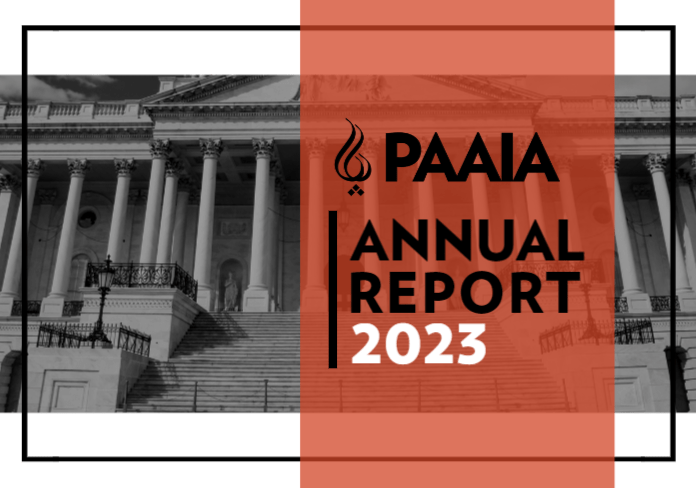




PAAIA Advocates for and Supports the Iranian People's Aspirations for Democracy, Human Rights, Freedom, and Self-Determination
The Temporary Family Visitation Act (TFVA) creates a new nonimmigrant visa category that allows family members of U.S. citizens and permanent residents to temporarily visit their relatives in the United States.
The Temporary Family Visitation Act (TFVA) creates a new nonimmigrant visa category that allows family members of U.S. citizens and permanent residents to temporarily visit their relatives in the United States.
Senators Introduce Bills Mandating Congressional Review and Oversight on Iran Deal
March 5, 2015, Washington D.C. – U.S. Senators Bob Corker (R-TN), chairman of the Senate Foreign Relations Committee, and Robert Menendez (D-NJ) last week introduced legislation which would require congressional review and approval of any
Bar Associations and Immigration Judges File Amicus Briefs in Support of Judge Tabaddor
February 27, 2015, Washington D.C. – Asian Americans Advancing for Justice along with the Iranian American Bar Association and eleven other bar associations filed a friend of the court brief (amicus curiae) today in support
Maz Jobrani: I’m Not a Terrorist but I Played One on TV
February 20, 2015, Washington D.C. – World-renowned comedian and actor, Maz Jobrani, explains what it’s like to be an Iranian American in Hollywood in his new book, “I’m Not a Terrorist, But I’ve Played One
Cyrus Habib’s Legislative Video Testimony Bill Passes Washington State Senate
February 20, 2015, Seattle, WA – The Washington State Senate recently passed legislation authored by Senator Cyrus Habib that would allow citizens to submit legislative testimony remotely via the internet. In a unanimous vote, Senate
PAAIA Welcomes UMass Amherst’s Reversal on Ban of Iranian Students
February 18, 2015, Washington, D.C. – The University of Massachusetts Amherst today announced that they have reversed the ban on Iranian students from their science and engineering programs. The policy reversal comes after UMass Amherst
Farzaneh Brothers Donate $1.6 Million to Oklahoma State for Iranian Studies
February 13, 2015, Washington D.C. – The Oklahoma State University will be expanding their Iranian and Persian Gulf Studies program thanks to Iranian American business owners and philanthropists Mohammad and Jalal Farzaneh. The $1.6 million
Hafez and the Lines of Beauty
February 13, 2015, Washington, D.C. – In conjunction with an exhibit on Nasta’liq, an aesthetically refined form of Persian calligraphy developed between the 14th and 16th centuries, the Freer and Sackler Galleries of the Smithsonian
Rand Report Examines Congress’s Role in Implementing a Nuclear Deal with Iran
February 13, 2015, Washington D.C. – Rand Corporation recently released a comprehensive non-partisan report entitled, “The Days After a Deal with Iran: Congress’s Role in Implementing a Nuclear Agreement,” as part of a series of
PAAIA Voices Concern Over UMass Amherst’s Proposed Policy on Iranian Students
February 13, 2015, Washington, D.C. – In a recent statement, University of Massachusetts Amherst announced they will no longer accept Iranian nationals to their engineering and natural sciences programs due to their concerns in complying
The Census Bureau’s New MENA Category and its Implications for Iranian Americans
February 12, 2015, Washington, D.C. – The U.S. Census has initiated a plan to test a new classification for persons from the Middle East and North Africa (MENA) region for possible inclusion in the 2020
Donate to PAAIA’s IA-100 to continue our hard work in reuniting families
PAAIA is working towards passing the TFVA which will create a new visa category that will allow the family members of U.S. citizens and permanent residents to visit from abroad. Currently, family members must apply to visit their relatives in the U.S. through B-2 visas which results in an unnecessarily high denial rate due to presumptions that the applicants intend to immigrate. The new visa category created by the TFVA will provide an opportunity for family members to visit their U.S. relatives without the worry of visa overstays.

